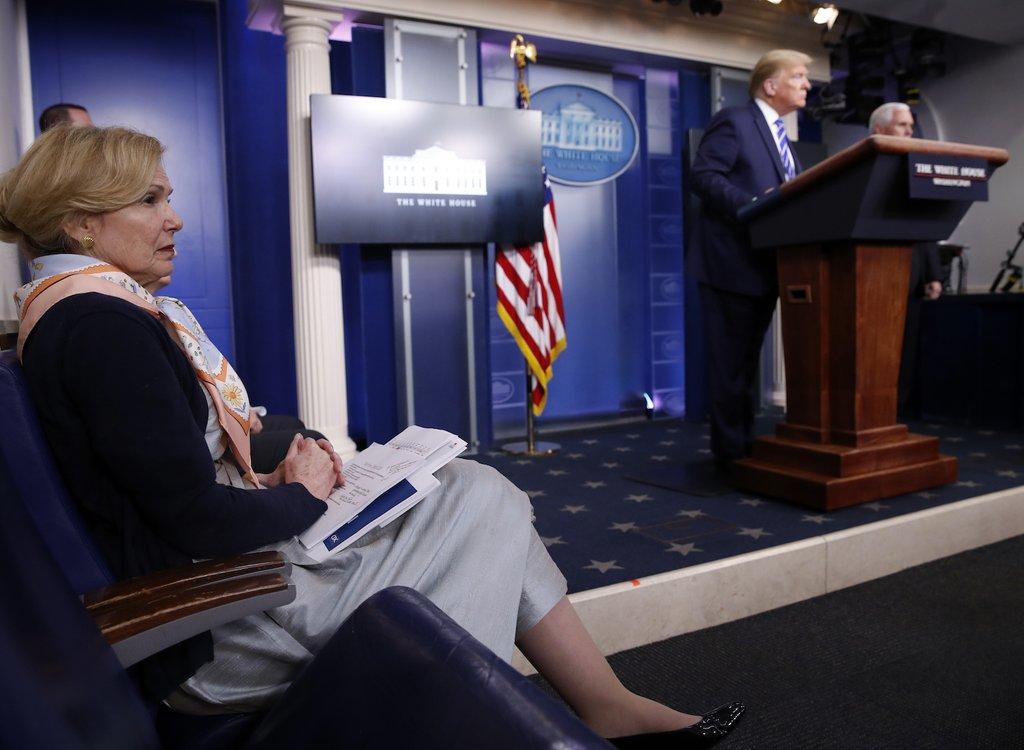Is Coronavirus Bad for Populism?
archive


A backhoe buries coffins in a common pit at the Nossa Senhora Aparecida cemetery in Manaus, Brazil on April 22, 2020. (Photo: Emerson Cardoso/AP)
Is Coronavirus Bad for Populism?
Before we had COVID-19 we had populism. Until recently the popularity of Boris Johnson and Nigel Farage in the UK, Matteo Salvini in Italy, and Marine Le Pen in France was unequivocal, but almost insignificant compared to that of Jarosław Kaczyński in Poland and Viktor Orbán in Hungary. And that’s only in Europe. Modern-day populism is founded on a specific but crude and somewhat distorted understanding of the social and political landscape where only two political groupings exist: the perfidious elite, holders of the reins of political and economic power, and the excluded masses. Populist movements are the self-proclaimed dissenting political forces out to shatter the status quo. An irreverent, nonconformist agenda explains populism’s attraction. By giving a voice to the powerless, their aspiration is to dislodge the ingrained interests of the power-elite: populist leaders see themselves as the re-embodiment of Saint George slaying the elitist dragon, David defeating Goliath. But the COVID19 pandemic may expose the underlying weakness and long-term inadequacy for effective political leadership of these core populist positions.
Generalizations about populism in politics are always hazardous. Nevertheless, the lexicon of the modern populists reveals two recurring themes: anti-intellectualism and provocation. Because populist leaders want to identify with the masses, they portray intellectuals as the high-brow end of the elitist faction, and predictably direct their scorn towards the literati, journalists, artists, and especially academics. The closure of the Central European University in Budapest perfectly follows this script. Anti-intellectualism is also the reason leaders of populist movements tend to communicate via a direct and often vulgar prose, why political correctness is derided, and norms of respectful interaction regularly infringed. Donald Trump is a master at this type of political rhetoric. In politics the gains to be had from using a belligerent, toxic, divisive language can be considerable.
Populism was the hottest topic in world politics up until the end of 2019, but in 2020 things seem to be changing significantly. The global COVID-19 crisis is unprecedented, just as it was unexpected. It is the biggest social, political, and economic challenge the world has faced since the end of the Second World War. Whether this crisis will strengthen or abate the rise of populism is something worth considering; it was after the economic shock of the First World War and the 1918 flu pandemic that Europe put its trust in far-right populist solutions, and with millions of jobs wiped out almost overnight by this pandemic the prospect of history repeating itself is not as far-fetched as it may sound.
The populist response to this crisis has been as swift as it was predictable. Microbiology was given a racial makeover when Donald Trump kept referring to COVID-19 as the “Chinese virus,” blaming this crisis not on a submicroscopic infectious agent but on the non-Caucasian ‘other’. And in Hungary Viktor Orbán made sure that no good crisis should go wasted by sucking the last few remnants of democracy out of the Hungarian political system, duly closing down parliament and concentrating even more power in his own hands.
Regarding the pandemic’s impact on populist politics more broadly, one possible scenario, put forward by Cas Mudde in a piece recently published in The Guardian, is that while it may kill hundreds of thousands of people worldwide, we should not expect it to ‘kill populism’. The reason for this is that ‘populism’ does not have one, unitary response to the pandemic: “In short, there is not one single ‘populist response’ to the coronavirus pandemic. There is not even a single ‘rightwing populist response’. Populist parties and politicians have responded very differently, in part depending upon whether they are in government or opposition.” As Mudde says, this crisis will have at best a moderate overall effect on populists: some will win, some will lose, and some will stay the same.

Dr. Deborah Birx, White House coronavirus response coordinator, looks on as President Trump brainstorms possible COVID-19 cures at a press briefing on April 23, 2020. (Photo credit: AP)
There is, however, a different scenario that ought to be considered. It is possible that COVID-19 may have exposed the soft underbelly of populist politics. To be precise, there are at least three areas where populism may come out badly from this crisis. First, if we have learned anything from the last few months, it must be that unity and not division will see us through the crisis. Our racial, national, religious divisions exacerbated by populists for their own gain have become insignificant: no-one will ever dare to resent the immigrant nurses, doctors, and hospital cleaners heroically working in our health services, risking their lives on a daily basis. Suddenly Brexit seems like a daft idea.
Secondly, in times of crisis people look for and demand skillful leadership, not bombastic jokers. What may be amusing in normal times, even electorally beneficial, becomes toxic in hard times. The COVID-19 crisis will bare every political naivety and inadequacy, every incompetence and inaptitude. Few politicians will come out unscathed from this, but many populist politicians will be seen to be wanting in their most basic job requirements. At a time when indecision costs lives, everyone is being reminded that politics is too important to be left in the hands of the unscrupulous, the unprincipled, and the opportunistic. Our necessary reliance on highly-skilled experts during the current crisis reveals the idiocy of populism’s anti-intellectualism: never before have university professors and their research been so valued and respected. President of Brazil Jair Bolsonaro’s affirmation that the experts are wrong and this pandemic is nothing more than a hoax will not be forgotten, nor will Xi Jingping’s duplicitous denials nor Donald Trump’s meddling and muddling.
The COVID-19 crisis will bare every political naivety and inadequacy, every incompetence and inaptitude.
Finally, in Europe, populist movements always side with nationalist sentiment to the detriment of the European Union. This position may be untenable post-crisis. The COVID-19 crisis has demonstrated the inability of national economies to deal with this crisis. Instead it has shown how a concerted effort of all European nations, led by the European Central Bank and the many instruments at its disposal, is the best and only hope for a swift recovery. What the citizens of Europe need going forward is a stronger EU, albeit one with a sturdier socialist agenda.
It will take many years to recover from this crisis. Politically the situation is volatile, and anything is possible, but this scenario is not beyond the realm of political reality: it sees populism coming out much weaker than before, as a peripheral and almost negligible ideology on the political landscape. Similarly, right-wing neo-liberal politics is likely to be reassessed in favor of a stronger state-run economy, with a nationalized health service at its core, including in the United States.



